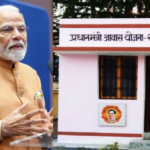Marital Rape: Can Husbands be Prosecuted for Forced Sexual Relations? The Centre’s Response in the Supreme Court

The issue of marital rape—whether non-consensual sexual relations within a marriage should be recognized as rape—has long been a matter of intense debate in India. This topic once again garnered national attention when the central government submitted its response to the Supreme Court, clarifying its stance on whether a husband can be prosecuted for rape if he forces himself upon his wife.
Legal Context: Marital Rape in India
In India, Section 375 of the Indian Penal Code (IPC), which defines the crime of rape, contains a notable exception. It states that sexual intercourse by a man with his wife, provided she is not below 18 years of age, does not constitute rape. This legal exemption has been a point of contention for women’s rights activists and legal experts who argue that it perpetuates a culture of patriarchy and leaves married women without legal recourse in cases of sexual violence within marriage.
The Debate: Crime vs. Marriage
Those opposing the criminalization of marital rape argue that marriage is a sacrosanct institution, where the bond between husband and wife cannot be equated with that of a stranger committing an act of rape. According to this view, the criminalization of forced sexual relations within marriage could destabilize the foundation of marriage and increase legal disputes between couples.
On the other hand, women’s rights advocates strongly assert that consent should be the cornerstone of any sexual relationship, regardless of marital status. They argue that not recognizing marital rape as a crime reinforces the notion that a wife is the property of her husband and that her autonomy and rights over her own body are secondary to the institution of marriage.
The Centre’s Response in the Supreme Court
In response to the ongoing discussions around this topic, the central government recently submitted its views to the Supreme Court. The government acknowledged the sensitivity and complexity of the issue, stating that the question of marital rape involves not just legal aspects but also deep-rooted societal norms, religious beliefs, and cultural practices.
The Centre argued that criminalizing marital rape could have far-reaching consequences on the institution of marriage and may open the door to misuse of the law. The government also mentioned the possibility of false accusations that could result from personal disputes between married couples, which could lead to the harassment of husbands.
Furthermore, the government pointed out that marriage in India is often seen through a socio-religious lens, and any changes to laws concerning the institution must be carefully deliberated. It urged the Supreme Court to consider all social, legal, and cultural aspects before arriving at a decision.
Public Reaction and Criticism
The Centre’s position has sparked a mixed reaction from the public. While conservative voices have supported the government’s view, emphasizing the need to protect the sanctity of marriage, women’s rights organizations and activists have condemned the stance. They argue that marital rape, if not criminalized, leaves married women in a vulnerable position where they are deprived of their fundamental right to bodily autonomy.
Critics of the government’s stance argue that the exemption of marital rape from the definition of rape violates a woman’s constitutional right to equality, dignity, and freedom. They point out that forced sexual relations within marriage are no different from any other form of rape and should be treated as a criminal offense, regardless of the marital bond.
Jay Bee Laminations IPO: A New Opportunity in the Electrical Steel Industry
International Perspective
Globally, marital rape is recognized as a criminal offense in many countries, including the United States, the United Kingdom, and several European nations. India, however, remains one of the few countries where the law still does not consider forced sexual intercourse within marriage as rape.
International human rights bodies have also voiced concern over India’s stance on marital rape. The United Nations and other organizations have repeatedly recommended that India amend its laws to criminalize marital rape, viewing it as a serious violation of women’s rights.
Way Forward
As the Supreme Court deliberates on the issue, the debate around marital rape in India is likely to intensify. The challenge before the judiciary is to strike a balance between preserving the institution of marriage and upholding the fundamental rights of women to autonomy, dignity, and bodily integrity. Legal reforms in this area must be accompanied by societal change, as deeply entrenched beliefs about marriage and gender roles continue to influence public perception.
Whether the law will ultimately evolve to criminalize marital rape remains uncertain, but the discourse is crucial in highlighting the importance of consent in all relationships, including marriage. The resolution of this issue will not only impact the legal landscape but also signal a significant step in the journey towards gender equality in India.




